
Learn What to Expect from Your Eyes as You Get Older
According to Doctor Moosa, a LASIK surgeon in Orange County, our eyes can deteriorate even if we maintain 20/20 vision for most of our lives. In fact, it is quite common for people to develop vision problems after turning forty. Yearly eye exams become increasingly important as you age, especially to monitor symptoms of glaucoma, macular degeneration, or cataracts. When these conditions are discovered early, patients increase their chances of maintaining strong, healthy eyes for a longer period of time.

Eye care professionals at LASIK clinics such as Excel Laser Vision Institute explain that not all age-related issues threaten vision; however, they can be uncomfortable and inconvenient enough to affect someone’s quality of life. Here are some of the most common aging eye conditions that people experience after turning forty:
Dry Eye
According to eye care professionals, certain hormonal shifts that happen later in life can cause a person’s mucous membranes to dry out. For example, women can experience symptoms of dry eye in the years directly before and after menopause as estrogen and progesterone levels decrease. These symptoms can be exacerbated by dry climates and frequent screen time. When staring at a computer, you only blink half as often as normal, which causes eye strain and dryness.
The best way to combat dry eye symptoms is to use lubricating drops. You can schedule an appointment with an eye doctor and speak to them about dry eye to see if they can prescribe eye drops to relieve any redness, itchiness, burning, and discomfort. There are many over-the-counter solutions that will help with this condition as well. Another way to ease dry eye symptoms is to drink plenty of water, avoid alcohol, and incorporate food that is high in omega-3s into your diet.
Worsened Vision for Reading
Many eye care professionals encounter older patients that suddenly have a hard time reading. This is quite natural and normal since our eye lenses get less flexible as we age. The best way to combat this vision problem is to visit an eye doctor or a LASIK surgeon in Orange County such as Doctor Moosa. You may qualify for laser eye surgery or there may be another procedure to help restore your close-up vision.
Worsened Vision at Night
Just as individuals may have a harder time reading as they get older, they may also have trouble seeing at night. This is due to the natural deterioration of the eye’s photoreceptors. Many patients may notice this problem while driving at night. The fastest way to improve night vision is to update your prescription. For a more long-term solution, you may consider laser eye surgery to treat low-order and high-order aberrations.
Glaucoma
Aging eyes commonly experience glaucoma, which is a buildup of pressure that damages the optic nerve. This can lead to vision loss, starting with peripheral vision. Eye care professionals recommend attending yearly eye exams to test for this condition. When glaucoma is diagnosed early, it can be properly treated.
Cataracts
Since our eye lenses are made of protein and water, it is common for those proteins to start clumping together. This phenomenon can lead to cataracts. Clumped proteins cause cloudy, blurry vision and halos. Eye doctors recommend anti-glare sunglasses to halt cataracts from becoming worse. Cataracts can be discovered at yearly eye exams and monitored in case cataract surgery is needed.
Macular Degeneration
The macula is a part of the eye located behind the retina. It is composed of light-sensing cells that are responsible for central vision. Unfortunately, the macula layers can start to break and leak, which leads to blurry vision. Macular degeneration is natural in older individuals. However, it can be minimized with a healthy diet and regular eye exams.
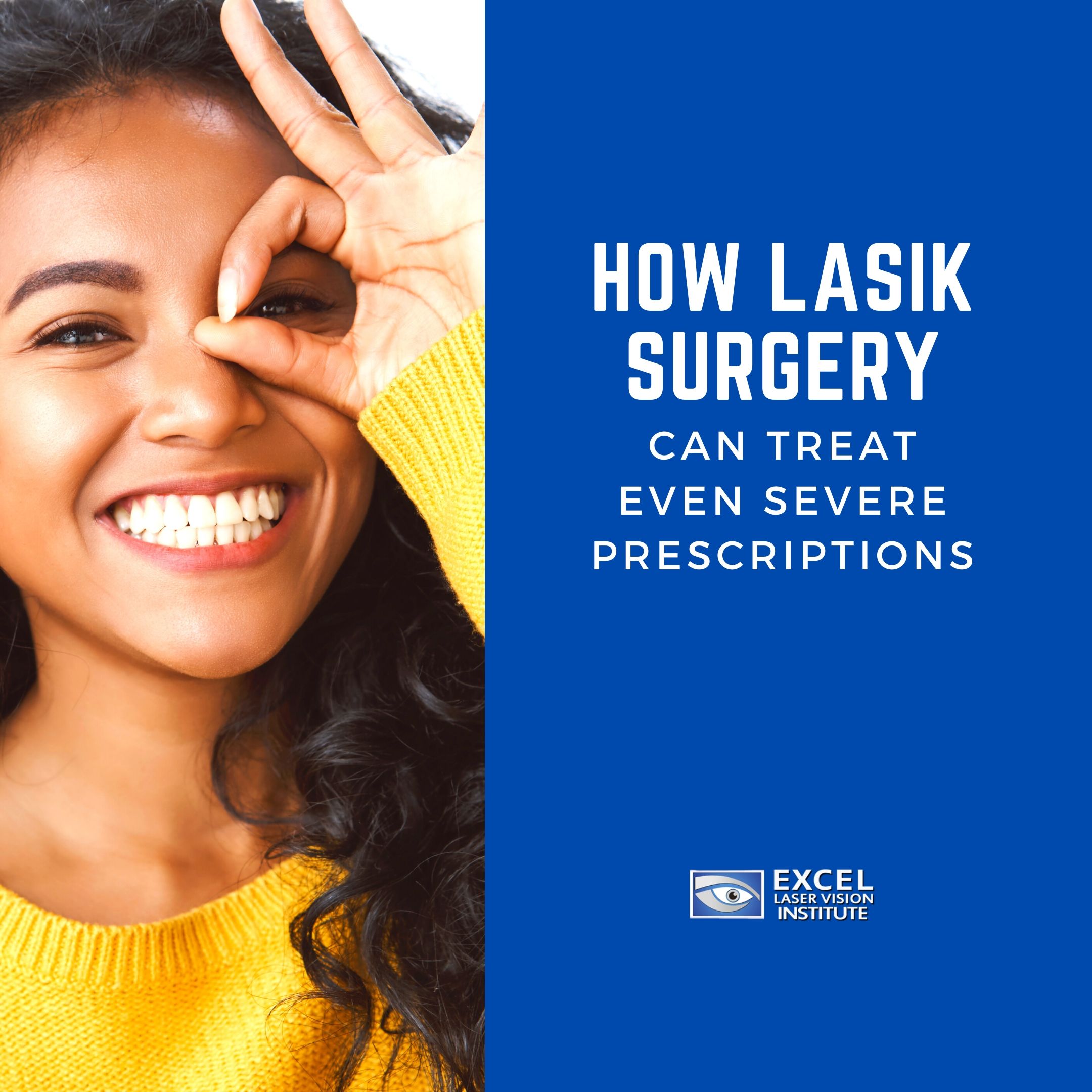
How LASIK Surgery Can Treat Even Severe Prescriptions
Los Angeles LASIK surgeons have helped many patients realize their vision goals, even when it seemed impossible. For people with very severe prescriptions and dependence on corrective lenses, there is hope! Many LASIK patients have achieved 20/20 vision or better with the procedure. So, before you assume that your prescription is unfixable by laser eye surgery, you need to first understand the advancements that LASIK has undergone over the years and how eligible candidates are now chosen for the procedure.
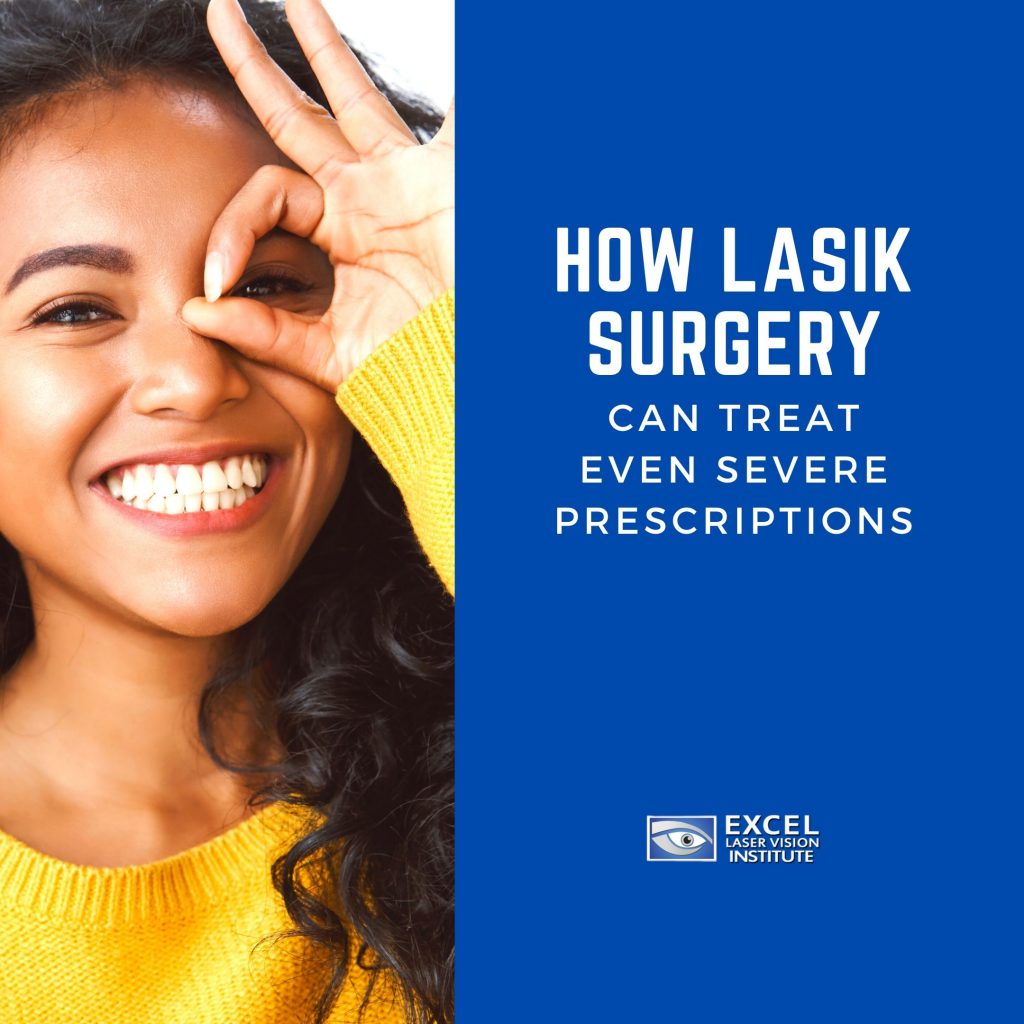
LASIK entered the ophthalmology field in the ’90s and, since then, has become the number one refractive surgery in the United States. With more precise technology, LASIK surgeons like Doctor Moosa can treat a broader range of prescriptions and vision problems. The American Refractive Surgery Council finds that LASIK has generated a 96% satisfaction rate among patients, which beats all other elective procedures.
One of the misconceptions that people have about LASIK is that it is only good for nearsighted patients. While this may have been true when it gained FDA approval in 1995, the procedure has gone through many advancements since then. Now, LASIK eye surgery is used for myopia (nearsightedness), hyperopia (farsightedness), and astigmatism.
Another common assumption that people make about LASIK eye surgery is that their prescription is too strong or too complicated to be treated. The simple fact is that you will never know until you ask. The best way to find out if your vision can be corrected through laser eye surgery is to visit a LASIK eye center in Los Angeles such as Excel Laser Vision Institute and get a consultation from a professional. Once you receive a full eye examination, your LASIK surgeon will have a better idea of whether or not you would benefit from the procedure.
While there are some cases in which someone may not be eligible for LASIK, it will not necessarily be because of their prescription. LASIK can treat a wide array of challenging vision problems; however, there are other factors to consider for the surgery. General health, family health history, cornea width, and pupil size are all elements that determine whether or not LASIK surgery can be performed effectively. In many cases where someone is not a proper LASIK candidate, they may qualify for another procedure that is more suited to their needs. PRK or SMILE are some of the laser vision correction alternatives that your LASIK clinic may offer.
All that being said, LASIK is an extremely valuable vision correction alternative that has changed the lives of many who thought that they would never be free of their glasses or contacts. We have the testimonials to prove it! In the video below, our Harvard-trained LASIK surgeon Dr. Moosa describes the life-changing results of LASIK for one patient with a particularly severe prescription.
Visit the Excel Laser Vision Institute to learn how you can achieve your vision goals with the help of our trained staff, state-of-the-art machines, and dedicated laser eye surgeon. With improved precision technology and increased customizability, LASIK has become better than ever.
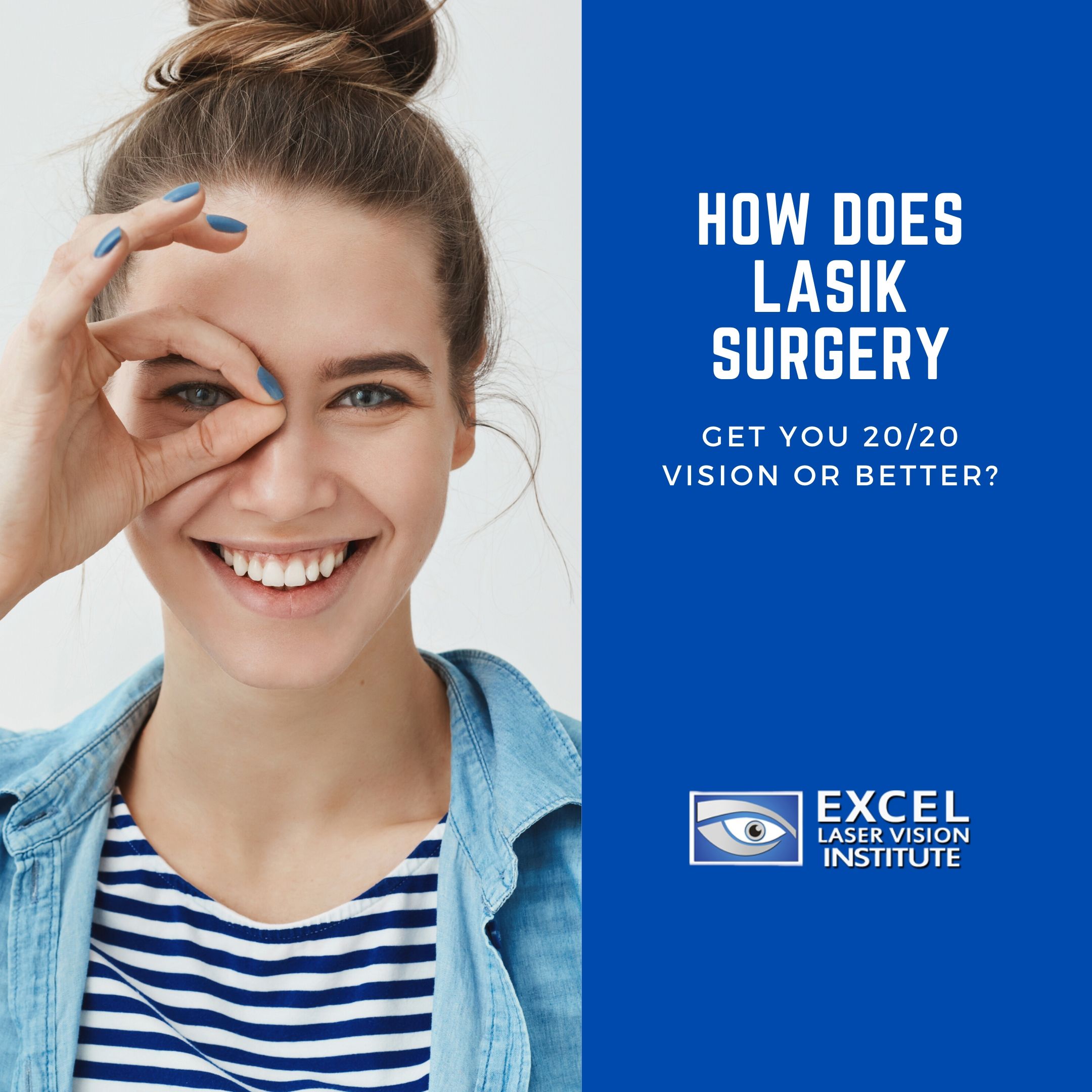
How Does LASIK Surgery in Los Angeles Get You 20/20 Vision or Better?
If you are considering laser eye surgery from a LASIK clinic in Los Angeles like Excel Laser Vision Institute, then you are not alone. LASIK is one of the most common refractive surgeries with a high patient satisfaction rate and precise, long-term results. Many patients are able to achieve 20/20 vision or better with LASIK eye surgery, making corrective lenses unnecessary.
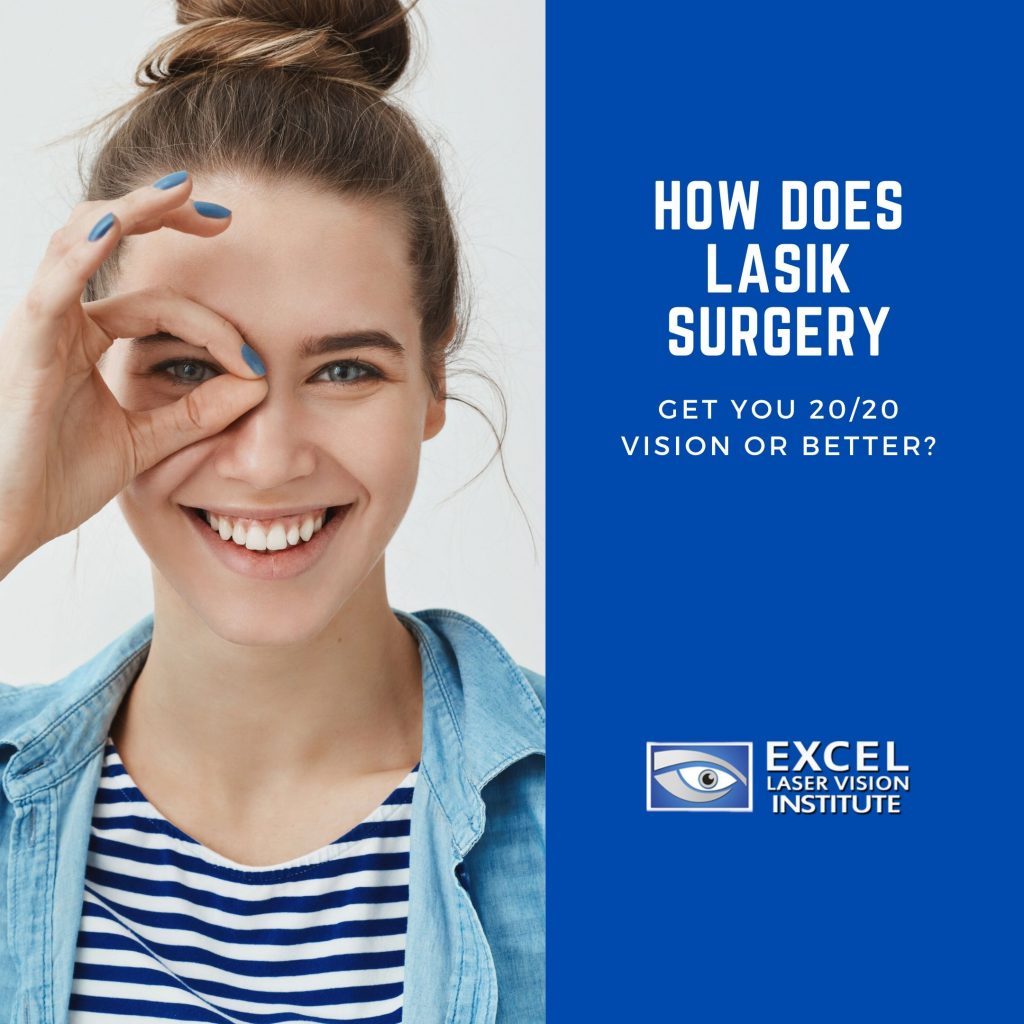
In order to determine if you are a good candidate for laser eye surgery, you should visit a LASIK eye center and have a comprehensive eye examination. Eye care professionals can measure different aspects of your eyesight and determine the best course of action for your vision correction. Every year, LASIK treats thousands of patients with myopia (nearsightedness), hyperopia (farsightedness), and astigmatism problems. See what Doctor Moosa does here:
Many professions require 20/20 vision without corrective lenses such as pilots, military personnel, firefighters, and police. However, only about 35% of adults in the world have this naturally. The value of LASIK surgery in helping individuals follow certain career paths is immeasurable.
LASIK experts can measure your visual acuity with a Snellen eye chart, with 20/20 as the golden standard. Dutch eye doctor, Herman Snellen, invented and standardized this process of measuring vision in the 1860s. While 20/20 is commonly referred to as the perfect vision, this is not necessarily the case. There are some individuals that can read lower on the eye chart after receiving corrective surgery like LASIK, with a measured visual acuity of 20/15 or even 20/10. This is achieved by reshaping the individual’s cornea with precise, customizable laser technology.
Other aspects of vision, besides clarity of images in relation to distance, include depth perception, focusing ability, color vision, side vision, and eye coordination. Eye care professionals can test each of these elements and look at the makeup of an individual’s eye to judge any eyesight problems. During a LASIK evaluation, specialists will walk through a person’s health history and family history as well as performing measurements of eye muscle movements, eye pressure, color vision, and pupil dilation. Other eye diagnostics will find the exact curvature and width of an individual’s cornea in order to better plan for the surgery.
Not everyone can be eligible for the procedure, however, there are many other vision correction alternatives that your LASIK clinic may offer in addition to LASIK. PRK and SMILE are successful refractive procedures that have been known to achieve the same results as LASIK in the case where candidates did not qualify for traditional laser vision correction methods. The best way to find a long-term solution for your vision problems is to visit an established LASIK eye clinic for an exam and consultation.
LASIK eye surgery is an investment that offers more than the convenience of never having to wash your contacts or replace your broken glasses again; although, these are not unimportant benefits. The money and time that you save from these micro expenses can add up over the years, making your laser eye surgery a cost-efficient alternative. Besides, the freedom and quality of life that you gain as a result of clear, independent vision is priceless. There are countless stories of LASIK patients who believe their lives were changed as a result of this procedure. Imagine, waking up and having crystal clear eyesight without having to do anything at all. This is what makes LASIK such a powerful vision correction option.
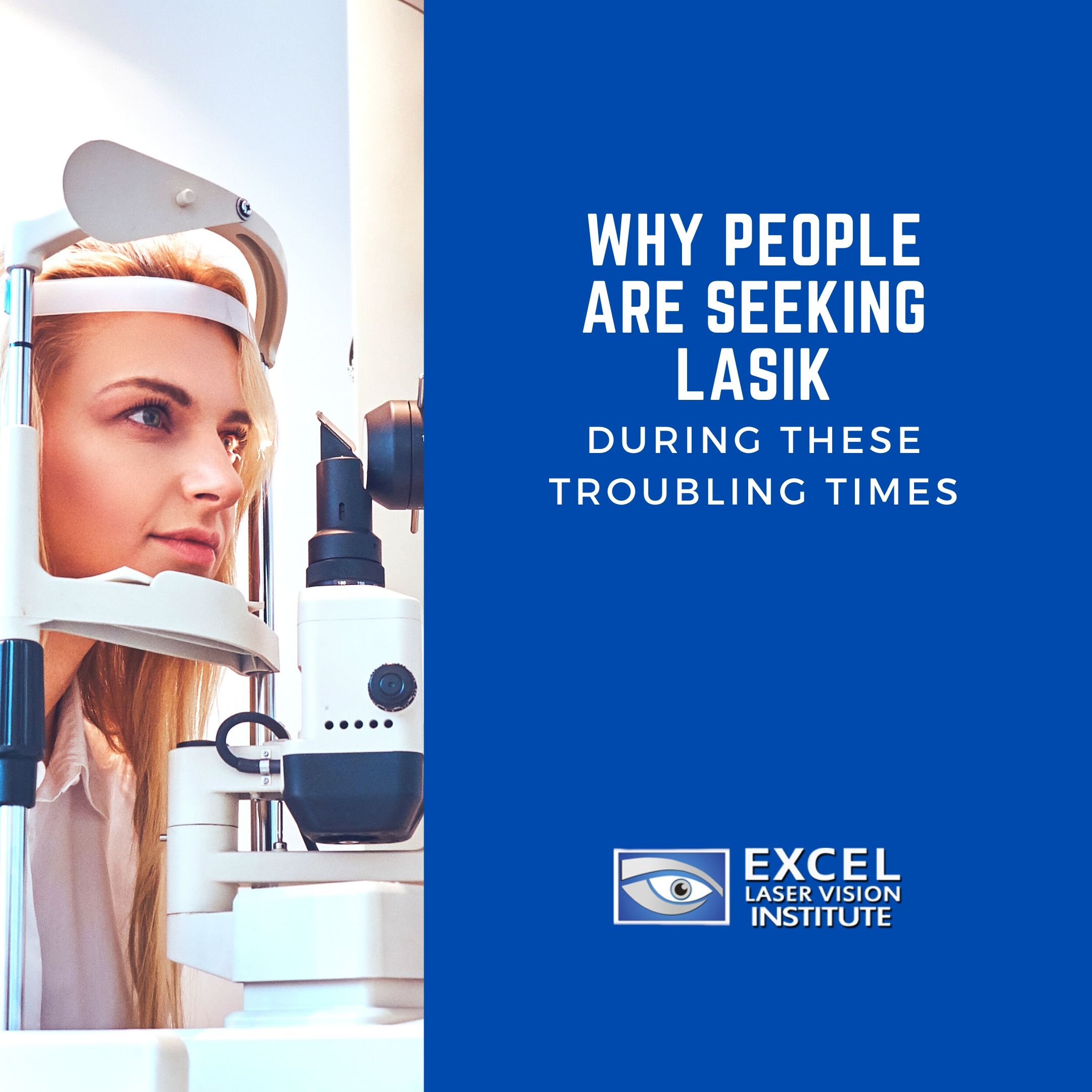
Why People are Seeking LASIK During These Troubling Times
Our eyesight is precious, which is why so many people with vision problems seek out LASIK clinics in Los Angeles. In recent months, the advantages of LASIK surgery have been further experienced by those who have received the procedure and further considered by people who have not. Dr. Moosa, a Harvard-trained surgeon at the Excel Laser Vision Institute, weighs in on this shift in perspective, in light of current events.
With LASIK, life-changing results are just a short procedure away. Here are some of the best ways to prepare for your LASIK surgery and maintain proper eye care afterward.
One of the first things you should keep in mind when preparing for LASIK is finding a dedicated surgeon and well-resourced clinic. Laser eye surgery requires advanced machinery and technical expertise in order to achieve successful results. You don’t want to rush into the elective procedure without first finding a doctor and a clinic that you are confident in.
On the day of the surgery, you should wear loose, comfortable clothing and eat a good, balanced breakfast so that you will feel relaxed, positive, and strong. Refrain from wearing any makeup, lotions, or other face products for a few days before the surgery and bring any medications that you need to the LASIK eye center in Los Angeles like Excel laser Vision Institute. You also want to have a designated driver that will get you to and from your home safely.
LASIK eye surgery is perfect in a time when everyone is trying to avoid touching their mouth, nose, and eyes. Individuals that rely on glasses and contacts touch their face significantly more than those who do not. LASIK offers the freedom of 20/20 vision or better without prescription lenses and thus minimizes the risk of infection that comes with inserting contacts or adjusting glasses.
Many people are considering LASIK surgery in a time where their patience is tested on a daily basis. There is enough to worry about without having to think about replacing your contacts, buying more contact solution, or fixing your prescription lenses. LASIK not only frees you from this inconvenience but it also further mobilizes you to do the things you need to do. This makes LASIK an investment well worth making.
Many patients experience high functioning vision following a LASIK surgery and return to their normal routines within a day. Mild symptoms like reddened eyes or slight irritation may accompany the healing process. LASIK patients should not associate red eyes with bodily infection unless body aches, fever, or breathing problems are also affecting them.
Good eye hygiene includes properly washing your hands, not rubbing your eyes, applying the appropriate post-LASIK eye drops, and attending regular check-ups to monitor the progression of your vision.
LASIK clinics are taking the proper precautions to keep patients and staff safe from infection and promote a positive, healthy environment. Office traffic will be reduced along with increased cleaning of surfaces and equipment. Now is the time to consider LASIK eye surgery to improve your quality of life, everyday convenience, and long-term freedom.

How To Maintain Healthy Eyes
Nowadays, everyone is concerned about staying healthy. According to a LASIK surgeon in Orange County, our eyes deserve particular attention at this moment. In order to minimize the risk of infection and potential vision problems as a result of poor hygiene, everyone should follow certain guidelines that will maintain the integrity of healthy, well-functioning eyes.
While we prioritize our general health, we should remember that our eyes do so much to improve our productivity, convenience, and quality of life. Here are some of the best ways you can protect your eyes, according to a LASIK surgeon:
Wash Your Hands
The number one tip that you will hear from any Orange County LASIK clinic is to wash your hands! Infections like conjunctivitis (or pink eye) can be contracted as a result of skipping this critical practice. You should also avoid sharing makeup, eye drops, towels, and any other product that gets near your eye with other people. This will minimize the spread of bacteria.
Limit Your Screen Time
According to a recent study, Americans spend an average of over 10 hours a day looking at a screen, whether that’s a computer, smartphone, TV, or other digital devices. This can cause a lot of eye strain and lead to dryness, fatigue, blurred vision, and irritation. In order to relieve your eyes from constant screen activity, you can try taking little breaks. Most eye care professionals recommend the 20-20-20 rule, which is that after every 20 minutes spent on a device, you should look 20 feet away for at least 20 seconds to give your eyes a chance to refocus. If you need to be inside for work, try to adjust your lighting so that it’s not too harsh for your eyes. You might even consider investing in blue light blocking glasses to help minimize screen time symptoms.
Take Care of Contacts
If you wear contact lenses, then you’re aware of the eye infection risks that come with this method of eye correction. You should always wash your hands thoroughly before inserting, removing, or adjusting your contact lenses. Follow your eye doctor’s instructions for daily cleaning methods and replacement timelines for reusable lenses. If you have the disposable kind, then remove and discard your contacts after each wear. Remember to remove your contacts before bed and only use the prescribed solution for cleaning your contacts. Tap water contains microorganisms that can attach to your lenses and cause infections.
Avoid Smoking
Many people are not aware that smoking can lead to macular degeneration, cataracts, dry eye, and uveitis. Recent statistics have shown that smokers are four times more likely than nonsmokers to experience blindness in old age.
Eat a Balanced Diet
In order to fortify your eye strength and vision, you should consume foods that are rich in vitamin A, vitamin C, calcium, and zinc. Try to incorporate vegetables like spinach, kale, and carrots in your diet. Salmon, apricots, and sweet potatoes are also good for your eyes.
Wear Sunglasses
One of the simplest things that you can do to protect your eyes is wear sunglasses! Harmful UV rays and radiation can cause cataracts and macular degeneration later in life. Make sure that your sunglasses offer full protection with UV400 or 100% UV protection written on the label.
It is so important to maintain good eye hygiene. Eyes are sensitive and valuable in our everyday lives. Serious inflammation and corneal infections can result in corneal scarring or even vision loss. So, in an effort to protect our bodies and our minds, everyone could practice better eye hygiene for a healthier, happier life.
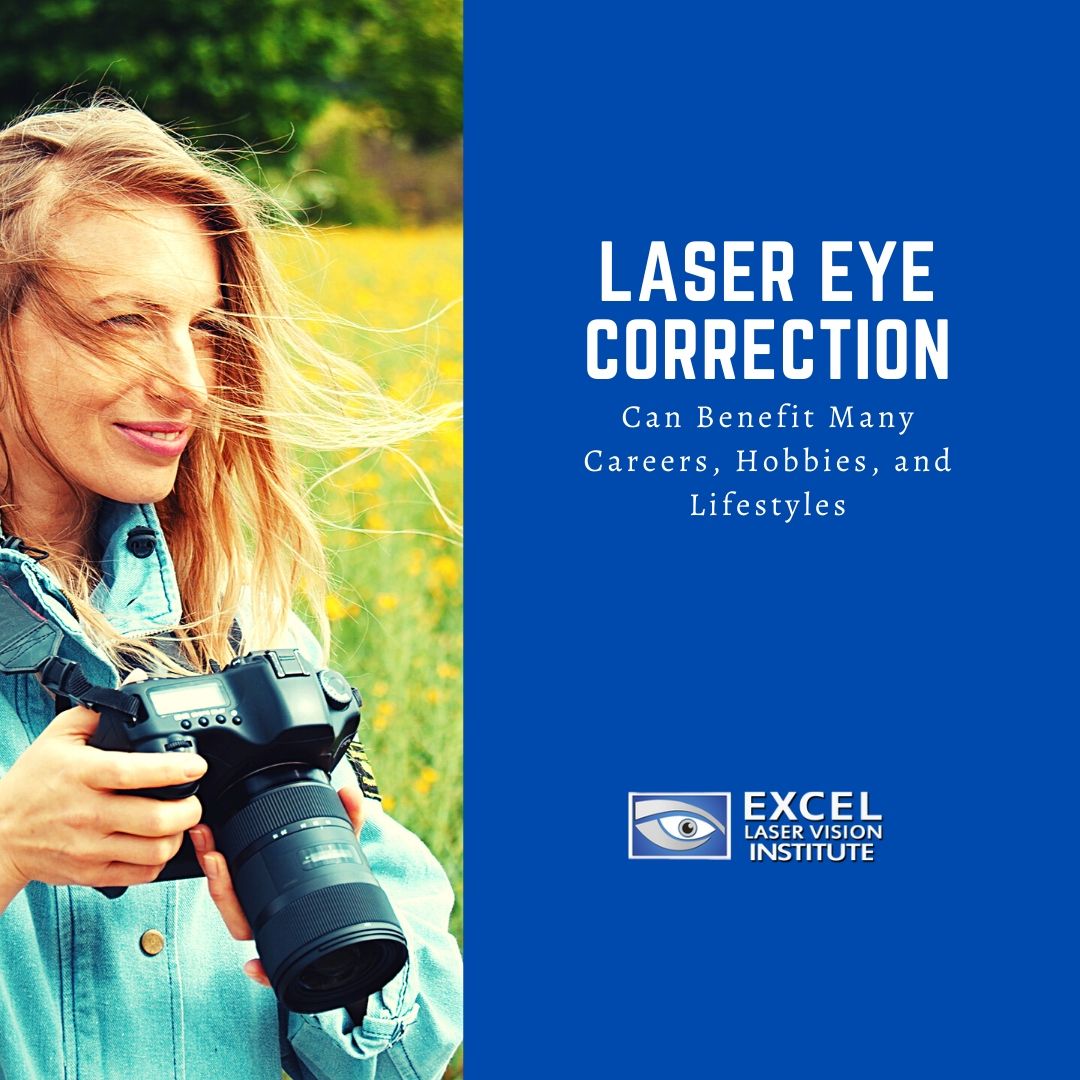
Laser Eye Correction Can Benefit Many
There are several reasons why someone might seek out an experienced LASIK surgeon in Orange County for laser vision correction. It might be to further their career or simply to make life more convenient. In either case, LASIK surgery can help people realize their full vision potential without always having to rely on their prescription glasses or contacts. This level of freedom can allow people to pursue hobbies, careers, and lifestyles that they’ve always wanted for themselves. Here are some examples of how LASIK can help individuals in specific ways:
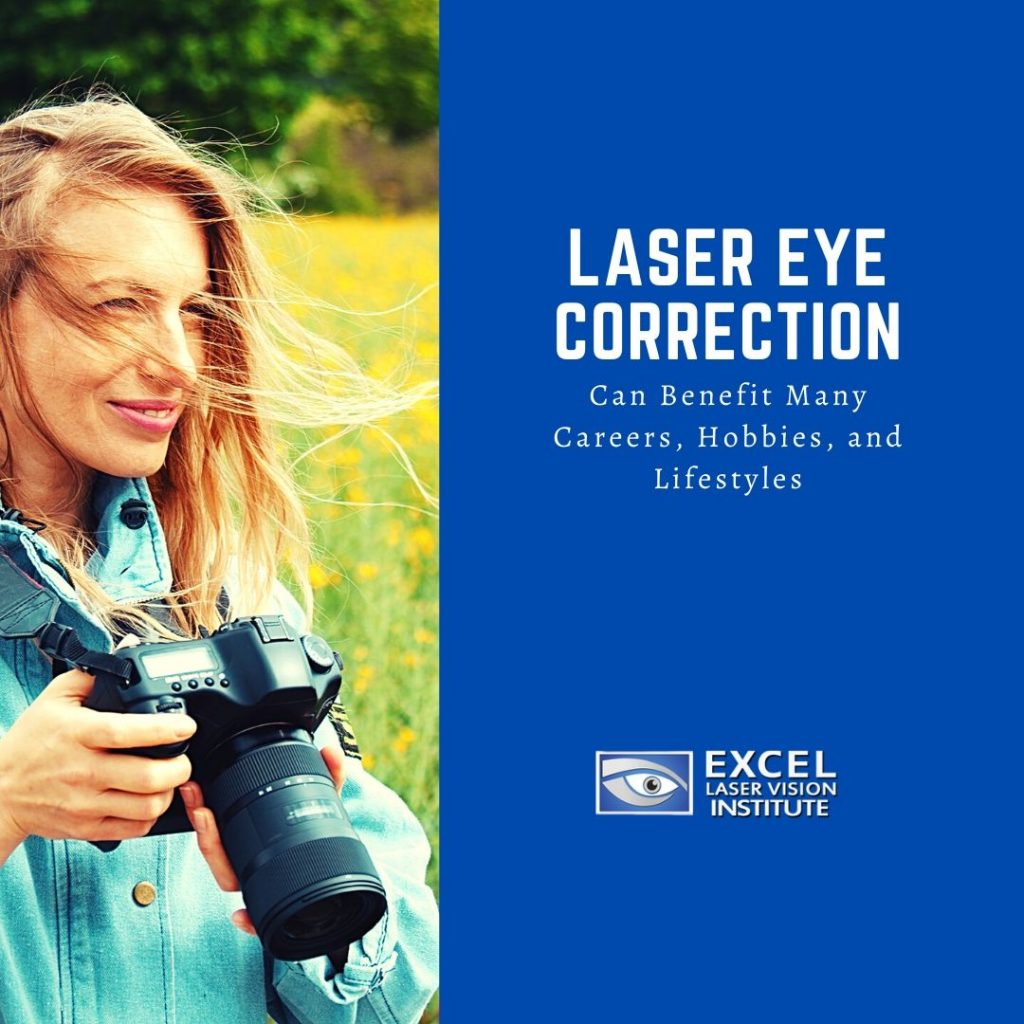
LASIK is Perfect for Parents
Whether you’re a stay-at-home parent or not, you know that looking after children is a full-time commitment. There are no sick days and no vacation days. So, when you struggle with your vision on a daily basis, this can make parenting even harder. Instead of always losing or directing your glasses or contacts, you could visit an Orange County LASIK surgeon to discuss laser vision correction. LASIK makes parenting tasks a breeze, from driving them to school to reading them a bedtime story to watching them as they play in the backyard. With excellent vision, you will feel more confident in your ability to look after your children and you will get to enjoy the experience to the fullest.
LASIK Can Help You Reach Your Career Goals
There are many people chasing certain career paths that could benefit from laser eye surgery from an Orange County LASIK clinic such as Excel Laser Vision Institute. Astronauts are one of the esteemed professionals that require excellent vision to get their job done. At NASA, astronauts are required to have 20/100 distant visual acuity or better uncorrected and corrected to 20/20 for each eye. Construction workers, firefighters, and law enforcement are other paths in which vision is necessary for safety and efficiency. Any profession that is battling the elements will need eye correction options that do not get in the way. Glasses and contacts can sometimes cause more problems than solutions in these cases. With LASIK eye surgery, people on the job don’t have to worry about letting anyone down because of their vision limitations. Emergency responders, surgeons, and lifeguards are another line of professionals that not only benefit from LASIK themselves but can also use this resource to help save lives because of the power and freedom that it grants them.
LASIK Lets You do What You Love
People with an inclination for any kind of creative expression will appreciate the freedom and clarity that LASIK eye surgery can give them. Having sharp eyesight is necessary to excel in photography as a career or a hobby. Glasses can be particularly burdensome for looking through camera viewfinders and shooting outdoor landscapes. Painters, sculptors, and mixed-media artists can improve their perspective of color, contrast, and depth with LASIK, which allows them to have a better handle on their art.
There are so many ways that LASIK eye surgery can support the career, hobby, or lifestyle you’ve always wanted. Through laser vision correction, many patients have been able to achieve 20/20 vision or better.
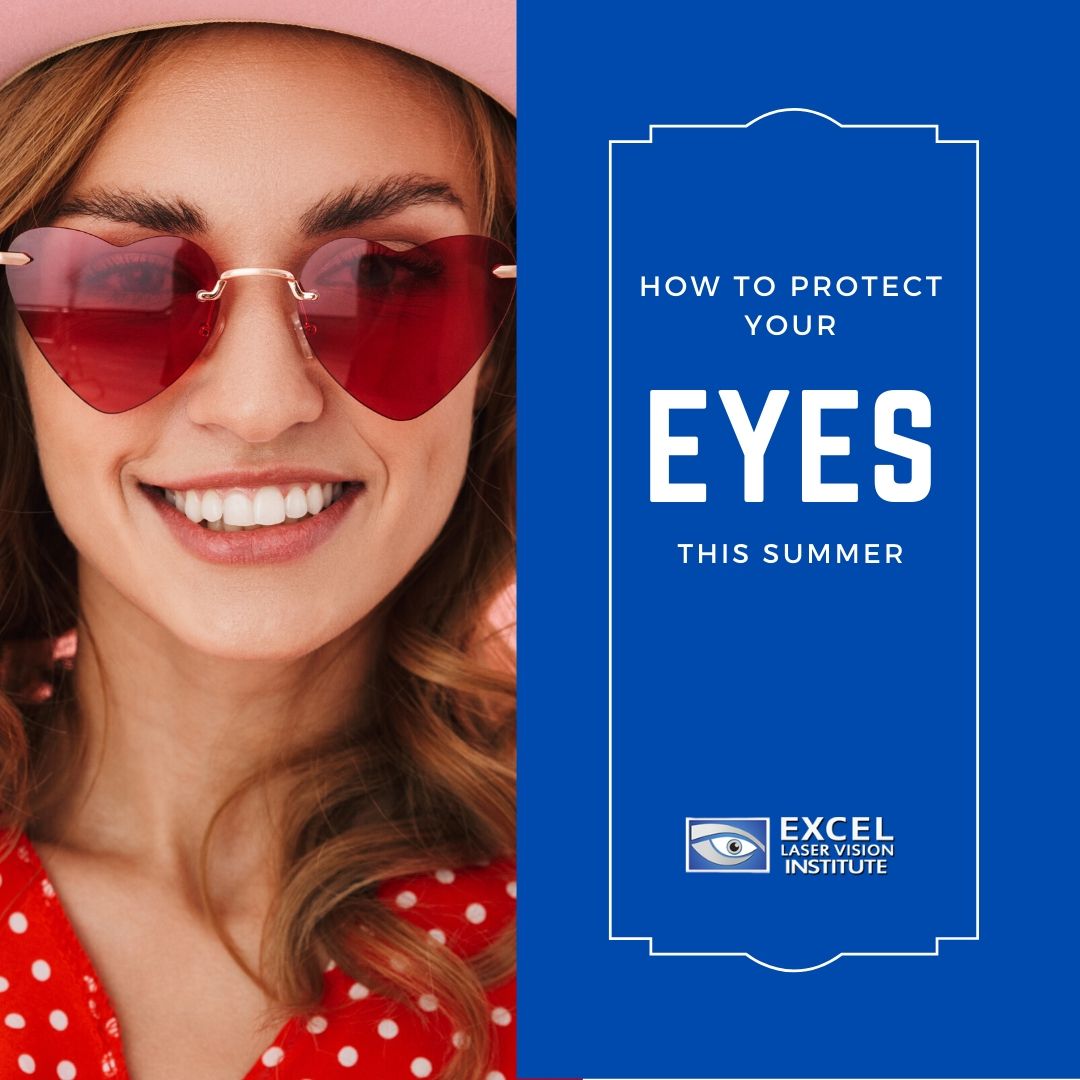
How to Protect Your Eyes This Summer
The trend that Los Angeles LASIK clinics are noticing is that many people only wear sunglasses as an accessory or when it is an especially bright day. LASIK specialists say that, whether or not you have undergone laser eye surgery, sunlight can significantly damage your eyes, just like it can damage your skin.
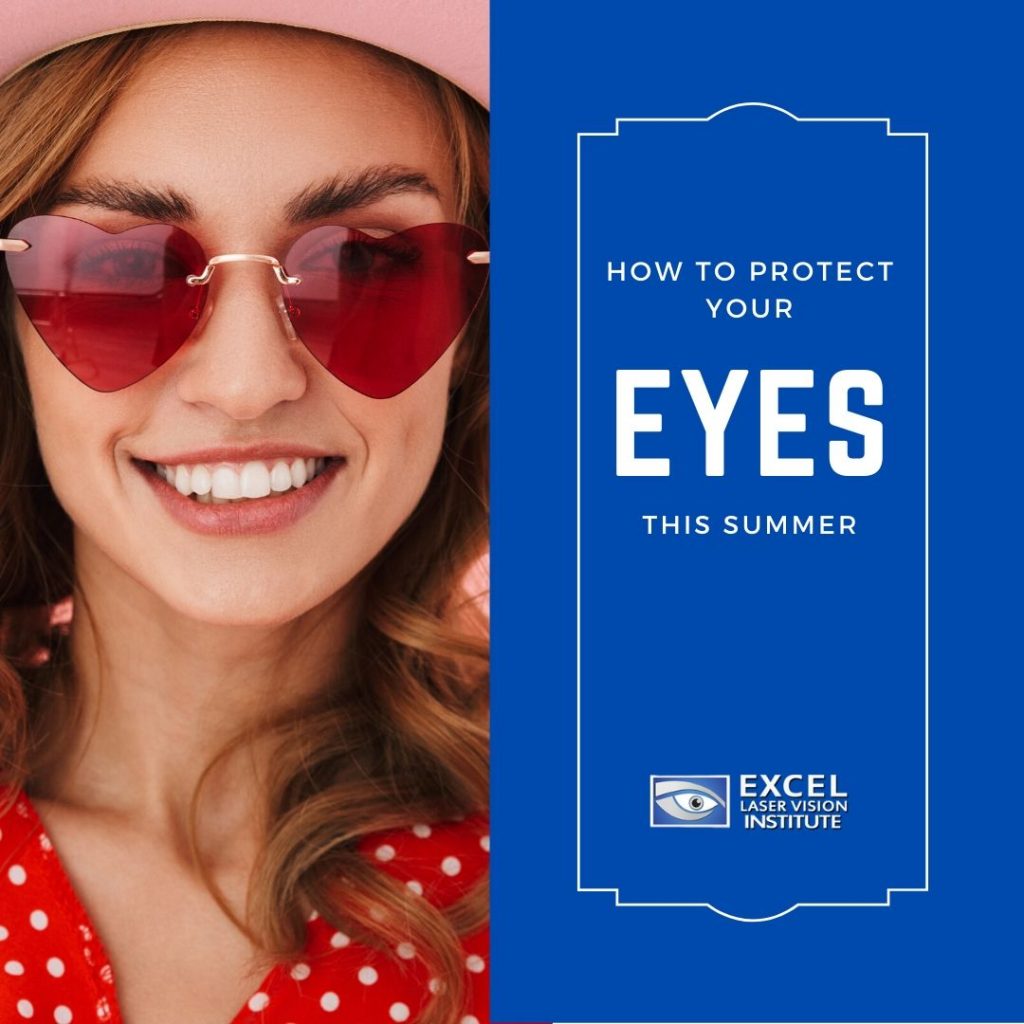
In the summertime, people are outside more frequently and, with long daylight hours, have increased exposure to UV rays. So, in order to prevent eye health issues down the road, it is important to use appropriate eye protection.
Cloudy days or cold days are no excuse to leave your sunglasses at home. In fact, the temperature has no effect on the amount of light that is seeping through the clouds. Many LASIK eye specialists in Los Angeles say that UV light can still harm you even when you don’t notice it. So, don’t be deceived by the kind of day it is when you look outside. Always have a pair of sunglasses on hand and wear them when you are spending extended periods outside.
When you are purchasing sunglasses to protect your eyes, make sure to choose the ones that are labeled 100% UV protection or UV 400. This means that the lenses are successfully filtering out those harmful rays. Fortunately, you don’t have to compromise on style or budget with UV-blocking sunglasses. There are plenty of attractive shades on the market that will offer the right protection without reaching designer prices.
Sunglasses should be your main source of eye protection during the summer months; however, there’s nothing wrong with adding a hat! Broad-rimmed hats or baseball caps can add another layer of protection by shielding light from directly above.
Another thing to keep in mind for your summer eye protection is the activities that you will be doing. If you are going to be swimming a lot, then you may think about purchasing some UV-blocking swimming goggles. These will not only protect your eyes from the sun but they will also keep your eyes safe from pool chlorine.
If you have children, then you will definitely want to introduce eye protection into their summer routines. While children may not experience the effects of sunlight damage right away, it is still a very real risk to their eye health and it could manifest later in life. Make sunglasses and hats a normal, comfortable part of their outside activities and they will start to pick up the habit.
When you are planning your summer days, make sure to consider when the sun will be at its peak in the sky and try to limit your outdoor activities in direct sunlight. Before noon or after five o’clock are the best times to plan an activity in order to avoid the strongest UV rays.
Your eyes deserve protection all year round, but they especially deserve it during the summer months, when you are more likely to spend extended periods of time outside. Buying some quality glasses, a hat, and maybe some swimming goggles is a low investment that will offer great results. So, make sure to grab your sun protection gear before you hit the beach, the pool, or wherever your summer adventures take you.
If you are tired of being limited by your glasses or contacts during the summer, then you can also visit a LASIK eye center in Los Angeles such as Excel Laser Vision Institute to discuss laser eye surgery. LASIK may be able to help you achieve your vision goals so that you are free to spend the summer how you choose, without worrying about your vision.
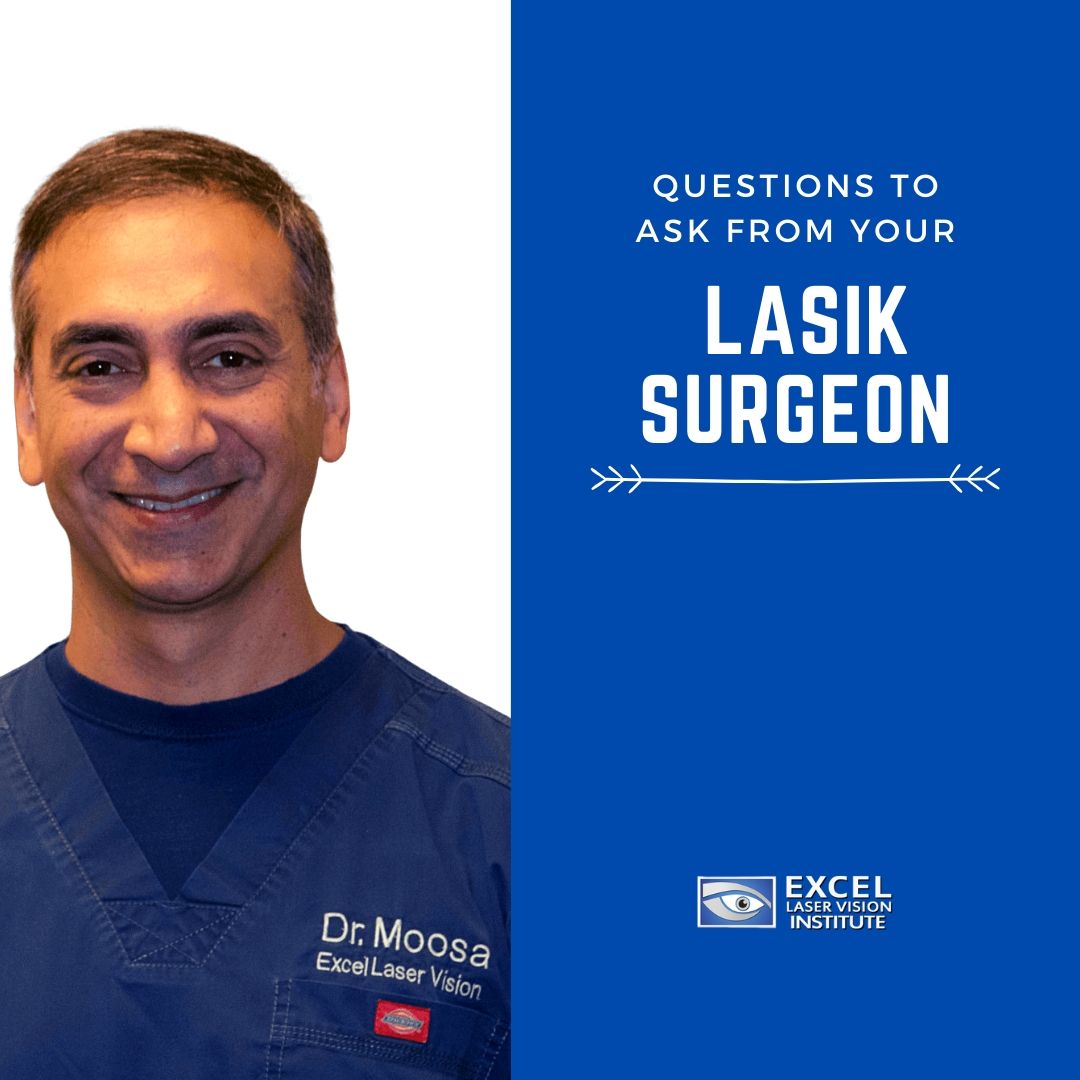
Questions To Ask From Your LASIK Surgeon
If you’re considering laser eye surgery and you want to speak to a LASIK surgeon in Orange County, then it is a good idea to have some questions prepared before you visit a clinic. Many people rely on the bits of information that they know about the procedure and forget to do their homework on the rest. Your LASIK eye specialist will likely provide all the information that you need about your procedure. However, it is not a bad idea to have a few other things clarified so that you can feel confident in your surgery. These questions will also help you evaluate the expertise of your surgeon and the kind of work they do at their clinic. Once you are fully on board with your choice of LASIK professionals, you will feel much better going into your procedure.
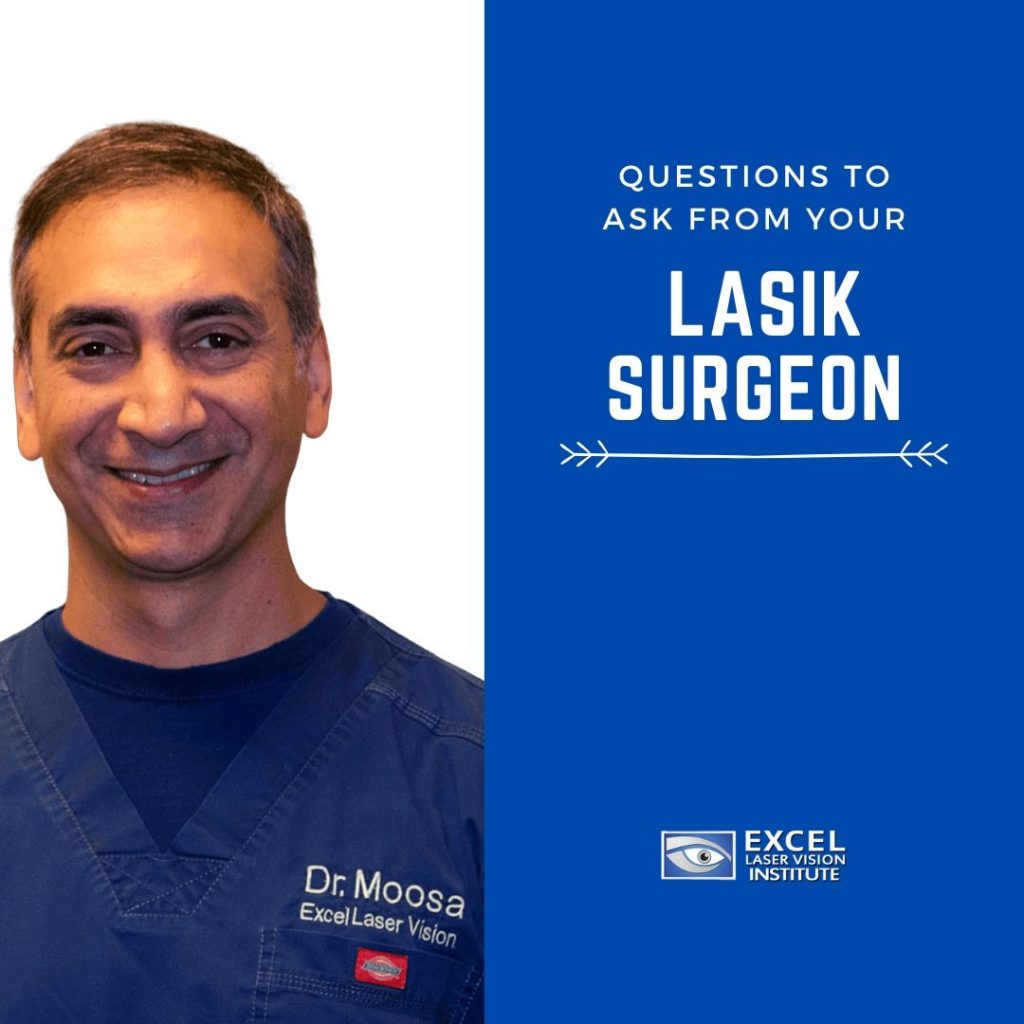
How many LASIK procedures has your surgeon performed?
Many patients ask this question in order to get a sense of their surgeon’s background and knowledge. While there is not a particular number that you should look for, you should use this information to gauge your LASIK surgeon’s level of experience and confidence in their ability to produce favorable results. You might also want to learn the types of laser eye surgeries that they have performed in order to see the range of their capabilities as an Orange County LASIK surgeon.
What kind of LASIK technology is used at this clinic?
The world of LASIK is continually shifting and advancing. So, it is important that your LASIK clinic in Orange County is using the latest and most efficient machines for your procedure. The kind of laser technology that a LASIK clinic has is especially important for procedures like bladeless LASIK. The better the machines, the more options you have for customizable procedures that fit your vision needs. Newer technology that is well-maintained will also improve accuracy results and safety.
Why are you a good candidate for LASIK?
LASIK is not right for everyone. Some people may require an alternative form of laser eye surgery like PRK or SMILE. Others may not benefit from refractive surgery at all because of preexisting health conditions. So, when you are discussing laser eye surgery with a LASIK specialist, be sure to have them explain your candidacy to you.
How can you prepare for your surgery?
There are a few different ways to prepare for the day of your surgery. Your LASIK doctor will likely convey all this information to you to make your procedure as efficient as possible with little to no discomfort. Some of the recommendations may be to avoid wearing makeup, to stop wearing contact lenses, and have comfortable clothing on. You can learn more about the best steps to take for your surgery by consulting your doctor.
What is the surgery like?
In order to feel more confident walking into your surgery, it is important to know what to expect. If you don’t know what LASIK is like, then go ahead and have your surgeon explain the process to you. You can ask them how long it takes, what they’re going to do, and what it’s going to feel like. It’s always best to know this information beforehand so you’re not caught off guard.
What happens after the surgery?
The last thing that you’ll probably want to plan for is your life after LASIK surgery, from recovery to beyond. You might want to ask your LASIK specialist how long the recovery period will last and what symptoms you should look out for. You can also learn how soon you’ll be able to return to your normal routine.
These are some good baseline questions that will help you feel more confident in your LASIK surgeon and LASIK clinic. If you have any others, feel free to ask! After all, this procedure is meant to accommodate your needs and your lifestyle. Once you fully understand the process, you can get started on achieving your vision goals!

20/20 Vision Explained
Most people have an idea of what 20/20 vision means, even without speaking to a LASIK surgeon in Orange County. However, this measurement of visual acuity is not always understood in the fullest context, which fuels the common misconceptions that people have about eyesight and vision correction. In order to bridge the gap of information, LASIK eye specialists are here to explain how vision sharpness is measured in the medical field and what that means for people who want to improve their current eyesight.

If you’ve ever had an eye examination, then you’re familiar with the letter chart that most clinics use to judge a person’s visual acuity. The characters get smaller on each line, all the way down to the bottom. An eye doctor can measure the strength of your eyesight based on how far down the chart you can clearly read.
These letter charts are named after Dr. Herman Snellen, the Dutch ophthalmologist who first started integrating them into medical practices. Snellen eye charts are standardized in format and size. Visual acuity correlates to the lines of the chart and is written as a fraction.
When you see 20/20, the two numbers represent different aspects of the Snellen refractive test. The first one (the top of the fraction, or the numerator) is the distance of the chart from the patient. So, in the case of 20/20 vision, the doctor has measured 20 feet of viewing distance. Since not all examination rooms have 20 feet of space, many doctors will utilize a mirror system to simulate this distance.
The second number (the bottom of the fraction, or the denominator) represents the smallest line that the patient can read. The top row is usually measured as 20/400, and the number decreases from there. This explains why 20/20 vision is better than 20/30 or 20/40. However, the smallest line does not stop at 20/20. While many people believe that 20/20 is perfect vision, it is actually just a baseline of good vision for the general population. The Snellen chart has lines that reach 20/15 or 20/10.
Visual acuity can be important for many different careers and lifestyles. Those who wish to serve in the military or become a pilot need 20/20 vision and civilians who want to obtain a driver’s license need 20/40. Orange County LASIK clinics have helped many people achieve their vision goals through laser eye surgery.
There are other factors that contribute to vision strength, besides visual acuity scores. Some of these optic elements include eye coordination, color vision, visual perception, binocular vision, and eye focusing. When you visit a surgeon, they will be able to determine the exact issues that your eyes are facing and recommend a procedure that will most benefit you.
Understanding visual acuity is the first step to confronting your vision problems and taking the proper steps to correct them. You can schedule an appointment with an Orange County LASIK surgeon like Doctor Moosa to get a thorough eye examination and consultation. Now that you understand the basics of 20/20 vision, you can ask the right questions and strategize with an eye care professional to achieve the vision you’ve always wanted.
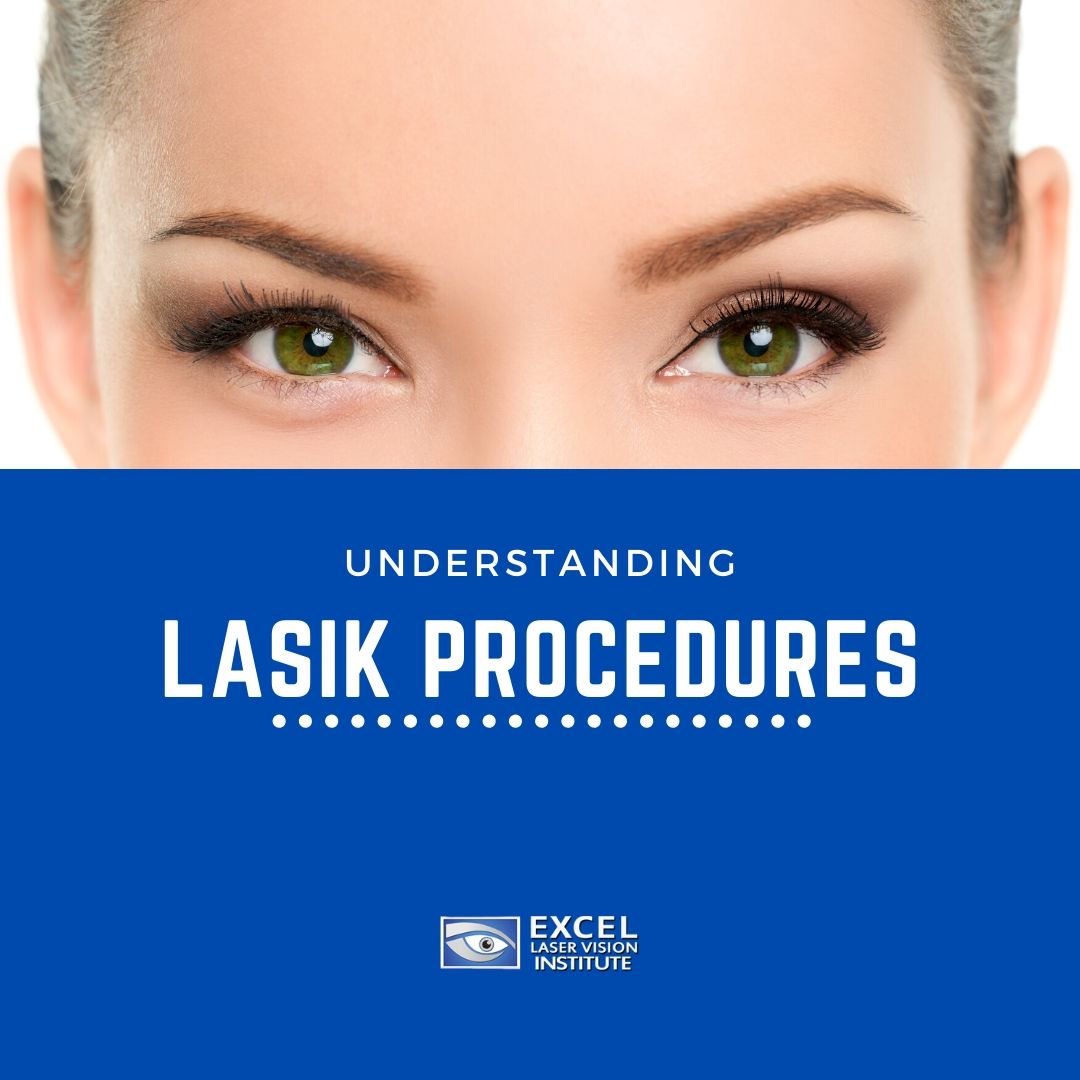
Understanding LASIK Procedures
While many people have heard of laser eye surgery or know someone that has visited a LASIK clinic in Los Angeles like Excel Laser Vision Institute, not many people fully comprehend the process as it relates to vision correction. This lack of understanding can contribute to the spread of misinformation and misconceptions about LASIK. In an effort to remedy the general confusion on the topic, LASIK eye specialists are here to explain some important details about this particular kind of refractive surgery.
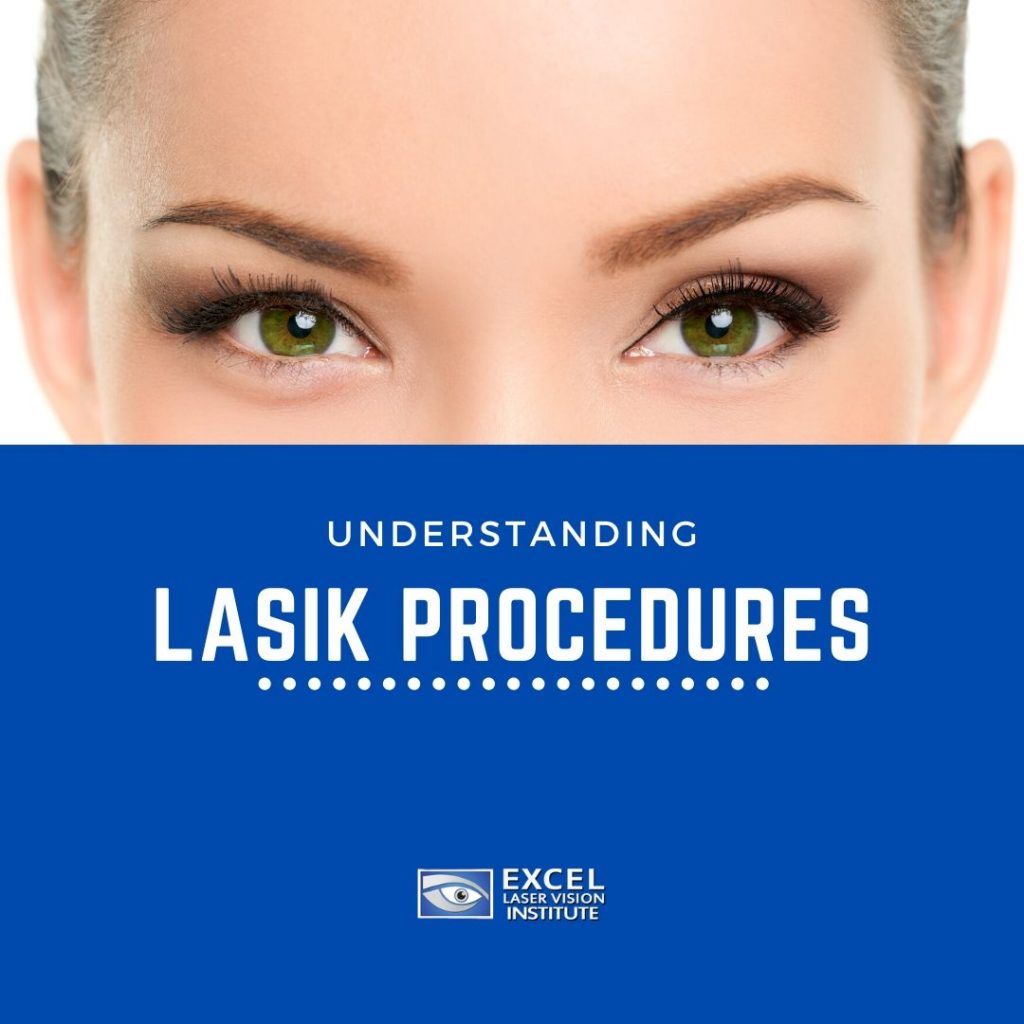
LASIK surgery requires two distinct steps. The first is the creation of a corneal flap and the second is the reshaping of the cornea. While these two actions do not make up the entirety of the procedure, they are the basic operative measures. All other steps revolve around these segments of vision correction.
Corneal Flap
The cornea is the clear outer layer of the eye. It helps your eye focus the light that passes through. This layer is the first point of interception for what you see and perceive. You can think of it as a window. In order to focus light properly, the cornea has to be shaped in a certain manner. Distorted corneal lenses can affect your vision negatively.
When you experience nearsightedness or farsightedness, it could be the result of a misshapen cornea, which blurs your vision. Many people visit a LASIK eye center in Los Angeles like Excel Laser Vision Institute for this very reason. LASIK has been known to treat myopia, hyperopia, and astigmatism. The success of this procedure has allowed many patients to achieve their vision goals without the aid of their prescription glasses or contact lenses.
When a LASIK surgeon is creating the corneal flap, they will likely use a microkeratome blade or laser. This will all depend on whether you are receiving blade or bladeless LASIK. You can speak to an eye specialist at a Los Angeles LASIK clinic such as Excel Laser Vision Institute about these two different methods and see which one fits your vision needs better.
Corneal Reshaping
For the precise reshaping of the cornea, a LASIK surgeon will use an excimer laser. This technology has many names, depending on the brand and manufacturer, but it provides the same level of programable accuracy. Excimer laser technology has also advanced over the years to provide a greater depth of customizable properties. With the use of this laser, LASIK surgeons can successfully reshape the living tissue in a person’s cornea without damaging it or any other part of the eye.
The excimer laser functions by eliminating microscopic cells in the cornea that sit under the surgical flap. Topography-guided technology is the key to a procedure that targets each patient’s specific vision correction needs.
After LASIK
The surgery is complete once the LASIK eye specialist replaces the corneal flap and applies any necessary bandages to promote healing. The recovery process is relatively quick and painless. Many LASIK patients are able to return to their regular driving, working schedules by the next day. Your LASIK surgeon will discuss post-operative care with you before you undergo the surgery. Nearly 80% of vision is achieved within the first few days of the procedure and vision strength continues to improve as the eyes fully heal and adjust.
It is important to attend all post-surgery appointments and discuss your vision progress with the LASIK eye specialist. LASIK eye surgery can help many patients achieve 20/20 vision or better!

